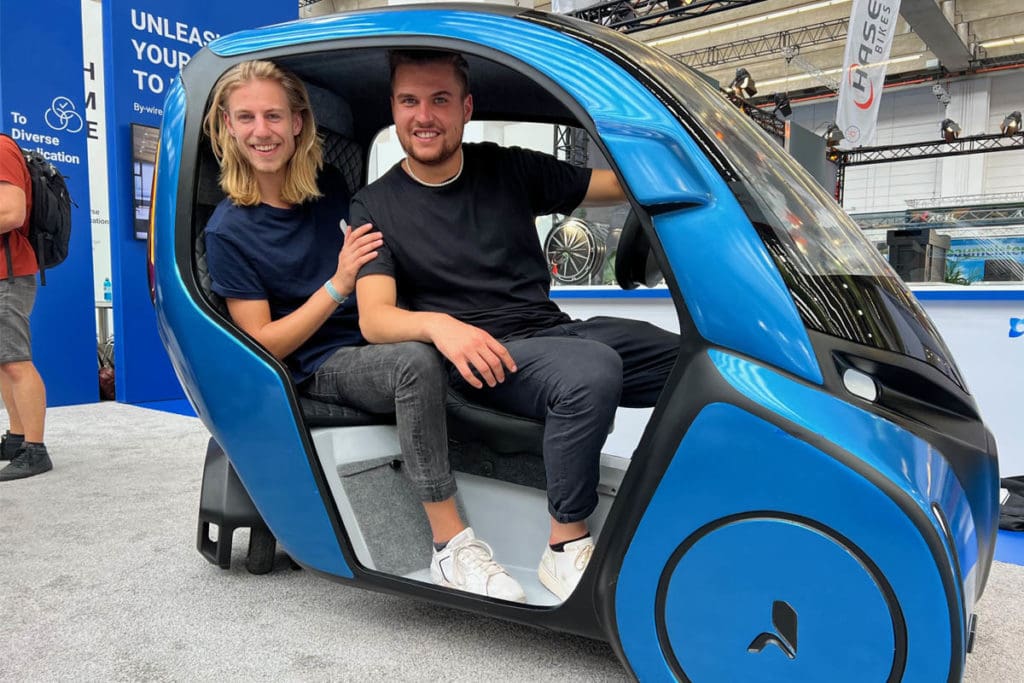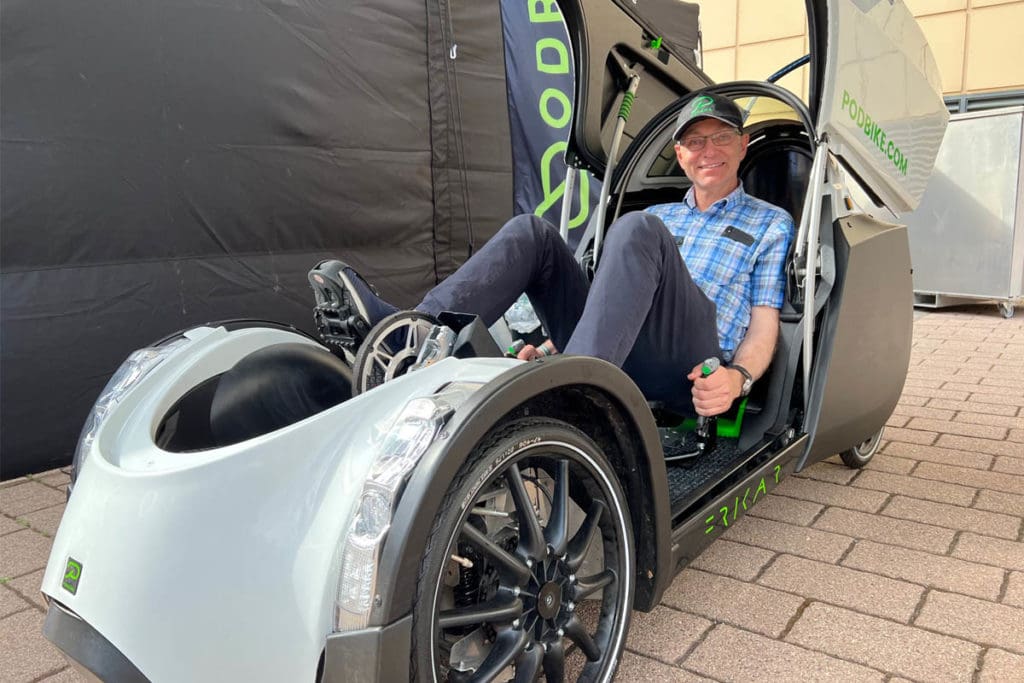Hopper Stays Close to Driving Experience

Frankfurt, Germany
Luring drivers out of cars and into more sustainable transport options could require alternatives as close as possible to the automobile experience, according to the developer of a new light electric vehicle (LEV) prototype.
German company Hopper Mobility, launched only last year, attracted plenty of attention when it exhibited its three-wheeler prototype at Eurobike 2022 last month.
Hopper co-founder and marketing head Georg Schievan said their prototype is “more car focused”, to provide a more sustainable transport solution for the two thirds of Germans who rarely or never ride a bicycle – even though the nation is a world-leader in cycling rates.
“If you’re trying to get people out of cars, it makes sense to make the alternative very much the same experience,” Georg said.
The Hopper has been designed with a similar seating position as a car, as well as a steering wheel, cabin heating and indicators. However, at a similar length to a compact cargo bike, the Hopper is shorter than the average car is wide, enabling four Hoppers to fit within one standard parking space.
The Hopper comes with a back seat that can fit one adult or two smaller children. Without a second person, there is up to 220 litres of load space. That is reduced to 70 litres if the second seat is occupied.
Its fibreglass construction incorporates the chassis, after Hopper Mobility discarded the steel chassis of the early prototype versions.
Hopper uses Mando’s chainless drive system – the first world’s first chainless system when it was unveiled in 2012 – and was part of the South Korean company’s exhibition space at Eurobike. The Hopper’s chainless drive system transfers pedalling power to motors produced by German manufacturer Heinzmann, which celebrated its 125th anniversary this year.
The LEV has a range of 60-120km, depending on the load, but that can be extended by a built-in solar panel in the roof, which can add up to 5km for every hour in full sunlight.
Hopper’s co-founders have come from the automotive industry, including BMW, so they are well placed to deliver elements that will appeal to car drivers.
At the same time, the vehicle is approved for bike paths in Germany and, in keeping with e-bike regulations, is limited to 25kph.
The Hopper is expected to retail for €7,300 (A$10,566) and an initial offering of 30 units for pre-production sales was sold out within 24 hours.
“We are in discussions with DeutscheBahn to make them available for rent at German train stations,” Georg added.
“Vehicles like the Hopper can be a quicker transport options in cities because it’s effectively a bicycle and you can park it just about anywhere.”

Podbike Finetuning
Meanwhile, Norwegian company Podbike has been busy resolving cabin noise issues with its debut, four-wheeled e-bike, the Frikar, as it prepares to start manufacturing the vehicle in the coming weeks.
Minor modifications were made to the cabin design and noise absorbing materials were added prior to the Frikar going on display and made available to test rides at Eurobike 2022.
Podbike founder, chief technical officer and product developer Per Hassel Sørensen said more than 3,000 pre-orders have been received for the Frikar, from customers within Europe, in addition to many registrations of interest from people outside the continent, including from Australia.
He said Podbike had already constructed 50 chassis but the launch into full production has been hindered by supply issues for some parts.
That has given the company time to do additional fatigue testing, some tuning to get more optimum torque from the motors and further soundproofing. That includes a slight reduction in the cabin width to broaden the gaps between the cockpit and the rear suspension arms.
